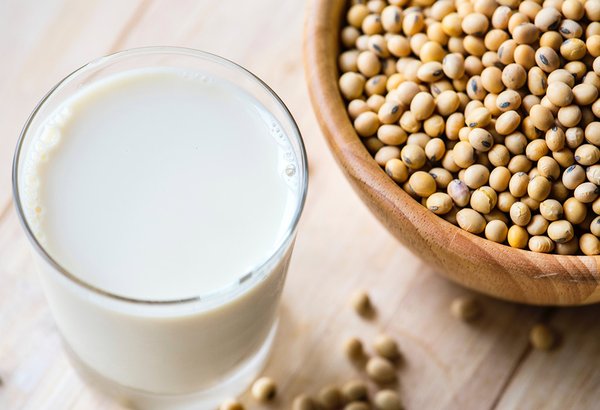Milk is a staple in American diets. Starting with toddlers, doctors and health professionals push the importance of “getting in enough milk” in children’s diets so they can grow and have strong bones. But what about as we age? Should we even be drinking milk, and if we should, is there a best type of milk? I tend to think of things in terms of gut-health friendliness so let’s start there.
Working in a gastrointestinal practice I have found that the first line of defense when treating nutrition-related symptoms is to eliminate dairy (cow’s milk). Dairy contains lactose, which is a milk sugar not tolerated well by a large portion of the population. After a gastrointestinal illness or surgery, it’s typically recommended to follow a lactose-free or dairy-free diet for a few weeks while your gut gets back to normal.
MORE HEALTH: FDA tests show substantial levels of PFAS in some foods
In my opinion (as a dietitian), it’s fine to drink or use cow’s milk as long as you aren’t lactose-intolerant. If you have an intolerance, are following a specific diet (vegan, paleo, etc.), you may want to search for a plant-based milk alternative.
A breakdown of the different milks available and their nutritional value follows:
1. Cow’s milk
• Dairy milk comes from the mammary glands of a cow. It’s high in protein, calcium and vitamin B12.
• Hard to digest for those with lactose intolerance or have recently had a gastrointestinal illness.
2. Soy milk
• Made from soybeans and filtered water.
• A typical 8-ounce glass is about 80 calories and contains 7 grams of protein. It’s a good source of B12 and isoflavones and is typically fortified with calcium and vitamin D. It’s also lactose-free/dairy-free.
3. Almond milk
• Made from ground almonds and filtered water.
• It’s low in calories (as long as it’s unsweetened) and protein. It’s typically fortified with calcium/vitamin D and is a good source of vitamin A/E. It’s lactose-free/dairy-free but would not work for people with nut allergies.
• Negative: typically includes thickeners, including carrageenan, which can often cause gastrointestinal distress.
4. Oat milk
• Made by soaking, blending and straining steel cut or rolled oats.
• Allergen friendly: lactose-free/dairy-free, nut-free, soy-free and typically gluten-free (if made with gluten-free oats). One 8-ounce cup typically contains 120 kcal, 3 grams of protein and 2 grams of fiber. It’s a good source of B-vitamins but needs to be fortified with calcium/vitamin D.
• Negative: Higher in calories/carbs without the added protein boost.
5. Coconut milk
• Made from water and the white flesh of coconuts.
• Low in calories, protein and carbohydrates but provides about 4 grams of fat per cup. It’s lactose-free and dairy-free, but not typically well tolerated by those with irritable bowel syndrome.
6. Rice milk
• Made from milled white or brown rice and water.
• Typically contains thickeners like carrageenan that may be poorly tolerated in the gut. It’s a great option for those with severe allergies as it does not contain any dairy, gluten, soy or nuts. It’s typically sweetened, higher in calories/carbohydrates and has minimal protein.
• • •
So what is the best type of milk for your gut? As with most things in nutrition, it depends!
If you are generally healthy and have no problems with digestion, it’s OK to have dairy. If you find that you’re bloated and in pain after drinking milk, try lactose-free cow’s milk or another plant-based alternative. If you prefer to go with a plant-based milk, be sure to avoid added ingredients like sugar, carrageenan and other thickeners. These may be more likely to cause gastrointestinal upset.
Liz McMahon, a Philadelphia-based registered dietitian nutritionist who works for a city hospital, writes a monthly column for PhillyVoice with a focus on gut health. She offers virtual nutrition counseling at her website, www.lizmcmahonnutrition.com.


